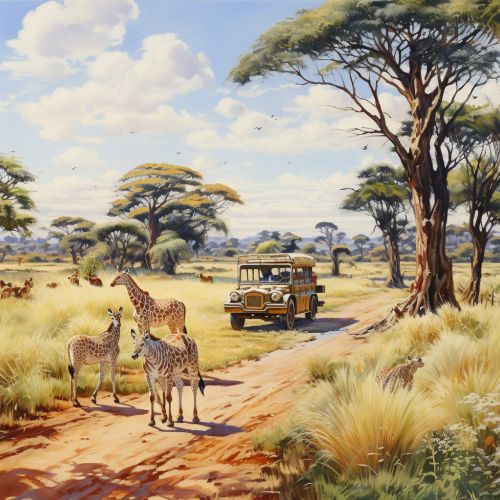Safari Parks
Overview
A safari park, also known as a wildlife park, is a type of zoo where visitors can drive their own vehicles or ride in vehicles provided by the facility to observe freely roaming animals. Unlike traditional zoos, where animals are often kept in enclosures, safari parks aim to give animals more space and a more natural environment. They are often larger and located in more rural settings than conventional zoos.


History
The concept of safari parks can be traced back to the game reserves of East Africa, where early conservationists sought to protect wildlife from hunting. The first safari park in a modern sense was established in the United Kingdom in the 1960s. The idea quickly spread to other parts of the world, with safari parks now found in many countries across the globe.
Design and Layout
The design and layout of a safari park are crucial to its success. The park must be large enough to accommodate the animals comfortably and provide them with a suitable habitat. The layout should allow for easy viewing of the animals without disturbing their natural behavior. This often involves the use of natural barriers, such as water bodies or rugged terrain, instead of fences to separate different species.
Animal Welfare
Animal welfare is a significant concern in safari parks. The parks must provide adequate food, water, and medical care for the animals, as well as ensuring they have enough space and the right environment to exhibit natural behaviors. Some safari parks also participate in conservation breeding programs to help preserve endangered species.
Visitor Experience
Visitors to safari parks can expect a unique and exciting experience. They have the opportunity to see a wide variety of animals up close in a more natural setting than a traditional zoo. Many parks also offer guided tours, educational programs, and other attractions to enhance the visitor experience.
Challenges and Controversies
Like any institution that houses animals, safari parks face a number of challenges and controversies. These can include issues related to animal welfare, conservation, and public safety. It is essential for safari parks to address these issues responsibly and transparently to maintain public trust and support.
Future of Safari Parks
The future of safari parks is likely to be influenced by ongoing developments in animal welfare science, conservation strategies, and public attitudes towards zoos and wildlife. As our understanding of animals' needs and behaviors continues to evolve, so too will the practices and policies of safari parks.
